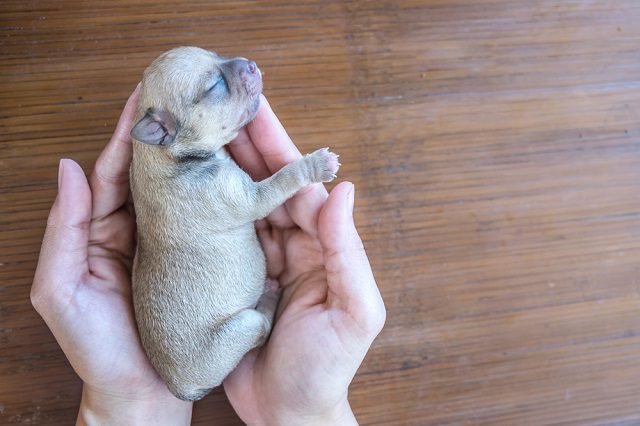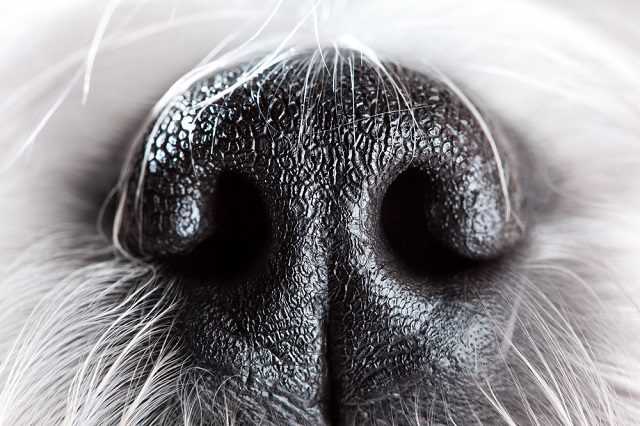Shih Tzu Newborn Puppies: The Ultimate Guide to Caring From Birth to the First Weeks
Congratulations on the arrival of your adorable Shih Tzu newborn puppies! As a responsible pet owner, providing the best care right from birth is essential. In this comprehensive guide, we’ll walk you through everything you need to know about caring for Shih Tzu newborn puppies, from birth to the first weeks of their lives.
The birthing process of Shih Tzu puppies
The birthing process of Shih Tzu puppies can be an exciting yet challenging time for both the mother and the owner. It typically lasts between 2 to 6 hours, but it can vary for each dog. During this time, providing the mother with a calm and stress-free environment is crucial to ensure a smooth delivery.
As the due date approaches, you should prepare a whelping box for the mother and her puppies. The package should be large enough for the mother to move comfortably but small enough to provide security. Line the box with soft bedding, such as blankets or towels, to keep the puppies warm and cozy.
The mother may exhibit restlessness, panting, and nesting behaviors when she goes into labor. Monitoring her closely and being ready to assist if needed is essential. However, it’s crucial to allow the mother to handle the birthing process independently unless there are complications.
Once the first puppy is born, the mother breaks the amniotic sac and cleans the puppy. However, if she doesn’t, you can gently remove the sac and clear the puppy’s airways using a clean towel. Keep the newborn puppy warm and provide enough time for the mother to bond with her offspring.

Caring for Shih Tzu newborn puppies immediately after birth
Immediately after birth, the newborn puppies are vulnerable and require close attention. One of the most critical aspects of their care is ensuring they are breathing correctly. If a puppy is not breathing or appears weak, gently stimulate their breathing by rubbing their chest or using a small towel to dry them off. This stimulation helps to activate their respiratory system and encourages them to take their first breaths.
It’s also essential to monitor the puppies’ body temperature. Newborn puppies cannot regulate their body temperature effectively, so providing a warm environment is crucial. The whelping box should be around 85-90 degrees Fahrenheit for the first week. You can use a heating pad or heat lamp to maintain a consistent temperature, but make sure to place it so the puppies can move away from the heat source if they become too warm.
Feeding the newborn puppies is another crucial aspect of their immediate care. The mother’s milk provides essential nutrients and antibodies that help strengthen the immune system. However, if the mother cannot nurse or there are complications, you may need to step in and provide supplemental feeding. Consult with your veterinarian for guidance on appropriate milk replacers and feeding techniques.
Creating a warm and safe environment for the puppies
After the immediate care needs of the newborn puppies have been met, it’s essential to establish a warm and safe environment for their continued growth and development. The whelping box should be kept in a quiet, draft-free area of your home, away from other pets and excessive noise. This will help create a calm and stress-free environment for the puppies.
The bedding in the whelping box should be changed regularly to maintain cleanliness and hygiene. Use soft blankets or towels that are easy to clean and provide a comfortable surface for the puppies to sleep and play on. Keeping the area clean is essential to prevent bacteria buildup and minimize the risk of infection.
As the puppies grow, they will start to explore their surroundings. It’s essential to puppy-proof the area to ensure their safety. Remove any potential hazards, such as electrical cords, toxic plants, and small objects that can be swallowed. Providing a safe environment will prevent accidents and promote healthy development.
The importance of proper nutrition for Shih Tzu newborn puppies
Adequate nutrition is crucial for the healthy growth and development of Shih Tzu newborn puppies. During the first few weeks of life, the puppies rely solely on their mother’s milk for nutrition. The mother’s milk provides essential antibodies that help protect the puppies from infections and diseases.
It’s essential to monitor the mother’s milk supply and ensure that each puppy is getting enough to eat. A well-fed mother will produce enough milk to meet her puppies’ needs. However, if you notice that a puppy is not gaining weight or appears weak, it may be necessary to supplement their feeding with a milk replacer.
Introducing solid food to the puppies’ diet is a gradual process that usually begins around 3 to 4 weeks of age. Start by offering small amounts of high-quality puppy food mixed with warm water or milk replacer. As the puppies grow, they gradually decrease the amount of liquid and increase the amount of solid food.
Monitoring and promoting healthy growth and development
Monitoring the puppies’ growth and development is essential to ensure they thrive. Regular weigh-ins can help track their progress and identify any potential issues. A healthy Shih Tzu newborn puppy should gain weight steadily, usually around 5-10% of their body weight daily.
Socialization is also a crucial aspect of their development. Expose the puppies to sights, sounds, and experiences from an early age. This will help them become well-rounded and confident dogs as they grow older. Introduce them to gentle handling, various surfaces, and different people to promote positive social interactions.
To promote physical development, provide opportunities for the puppies to exercise and explore. As they grow older, they gradually increase the amount of space available to them indoors and outdoors. This will help strengthen their muscles, improve coordination, and stimulate their curious nature.

Socializing Shih Tzu newborn puppies
Socialization plays a vital role in shaping the behavior and temperament of Shih Tzu newborn puppies. Early socialization helps them develop into confident, well-behaved dogs. Exposing them to various people, animals, and environments is essential to help them become comfortable and adaptable.
Allow the puppies to interact with family members and friends, including children and elderly individuals. This will help them become accustomed to different ages and behaviors. Supervise these interactions to ensure everyone involved is calm and gentle.
Introduce the puppies to other dogs and animals gradually in a controlled and supervised environment. This will help them learn appropriate social cues and behaviors. Positive experiences during socialization will set a solid foundation for their future interactions with other animals.
Essential grooming for Shih Tzu newborn puppies
Grooming is an essential part of caring for Shih Tzu newborn puppies. Their soft and delicate fur requires regular attention to keep it clean and tangle-free. Start by gently brushing their coat with a soft brush or comb to remove dirt or tangles. Be careful not to pull on their fur or cause any discomfort.
Bathing should be performed in moderation to prevent skin from becoming excessively dry. Use a mild puppy shampoo that is specifically formulated for their sensitive skin. Ensure a thorough rinse to eliminate any leftover residue. After bathing, gently dry them off with a soft towel or a hairdryer to a low heat setting.
It’s essential to pay attention to their ears and eyes as well. Check their ears regularly for signs of infection, such as redness, discharge, or a foul odor. Clean their ears with a gentle ear cleanser recommended by your veterinarian. Gently cleanse their eyes using a moist cloth to clear away any discharge or debris.
Common health issues and how to address them
While Shih Tzu newborn puppies are generally healthy, they can still experience common health issues. It’s essential to be aware of these issues and know how to address them promptly.
1. Hypoglycemia
One common health issue in newborn puppies is hypoglycemia or low blood sugar. This can occur if the puppies need more nutrition or are overly active. Signs of hypoglycemia include weakness, shivering, and seizures. If you notice these symptoms, give the puppies a small amount of sugar water or a high-calorie gel, and consult your veterinarian.
2. Vaccinations
Core vaccines include DHP for distemper, hepatitis, and parvovirus, and additional protection against respiratory infections (parainfluenza and bordetella) and rabies.
3. Deworming
Regular deworming is crucial to combat common intestinal parasites in puppies.
4. Flea and Tick Prevention
The potential health issue is parasites, such as fleas and ticks. Regularly check the puppies’ fur for any signs of infestation. Consult with your veterinarian for safe and effective parasite prevention and treatment options.
Veterinarian-recommended preventive measures to protect against external parasites.
5. Spaying/Neutering
Consider spaying or neutering in consultation with your vet at an appropriate age.
6. Microchipping
Implanting a microchip provides a permanent form of identification.
7. Regular Check-ups
Periodic veterinary check-ups for growth monitoring, addressing health concerns, and updating vaccinations.
8. Nutritional Guidance
Veterinarian consultation for tailored advice on a nutritious diet for different life stages.
9. Dental Care
Introduction of early dental care practices, including tooth brushing and suitable chew toys.
10. Behavioral Training
Behavioral training is essential for nurturing a well-behaved adult dog. This training encompasses basic obedience, socialization, and positive reinforcement methods. It’s advisable to consult a veterinarian or a professional dog trainer to tailor the training to your dog’s specific needs, ensuring a happy and obedient companion.
It’s essential to watch for any signs of illness, such as vomiting, diarrhea, or lethargy. Contact your veterinarian immediately for guidance and appropriate treatment if you notice any concerning symptoms.
Conclusion
Caring for Shih Tzu newborn puppies can be a rewarding and fulfilling experience. By providing them with a warm and safe environment, proper nutrition, and early socialization, you are setting them up for a healthy and happy life.
Monitor their growth and development closely, and seek veterinary care if you notice any concerning signs or symptoms. Regular vaccinations and veterinary check-ups protect them against diseases and ensure their well-being.
Enjoy this incredible journey of puppyhood and cherish the precious moments with your Shih Tzu newborn puppies. With the knowledge and skills gained from this ultimate guide, you can provide the best care for your furry little ones.







